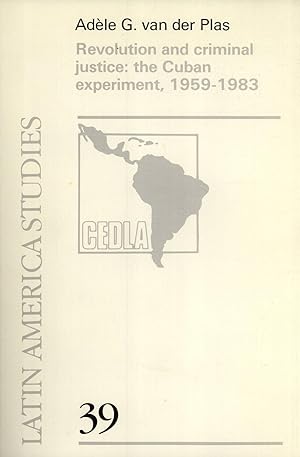In the first years of the Cuban revolution, experimental tribunals were set up in the countryside, and later in the big cities, in which justice was administered by lay judges chosen by and from the people. At first the procedure followed by these so-called base tribunals was very informal. Its key points were direct and active involvement by the neighbourhood, simplicity and comprehensibility.
In the course of the 1970s these base tribunals were integrated within a new system of judicial organisation. The emphasis was now on professionalism and efficiency, by which the basic administration of justice acquired a fundamentally different character. In this study, the genesis and structure of the base tribunals are set within the wider context of political developments within the Cuban revolution. The objective is to examine the extent to which the profound transformations which Cuba underwent after 1959 in its international relations, economic organisation and politico-cultural traditions have been reflected in new developments in the basic administration of justice.
